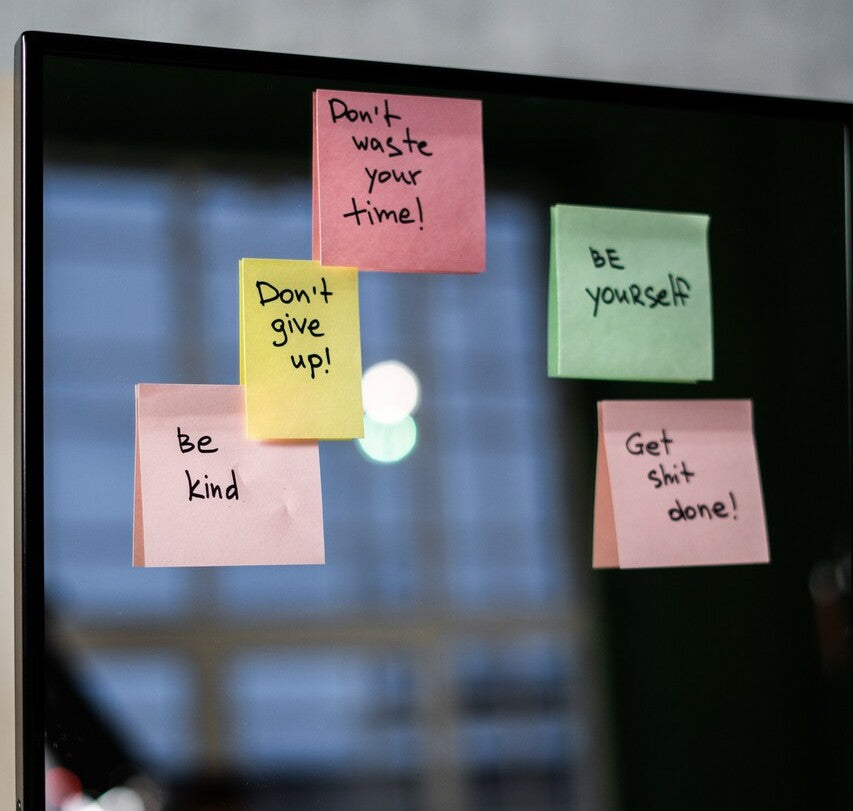Welcome to Win Your Week - our weekly blog on all things motivation, mindfulness, life hacks and more!
It can sometime feel like being negative is our default setting!
So today we want to talk about the role of positivity in our lives and how we can think more positively in our everyday lives.
But first, a very important question: Are you a glass half-full or glass half-empty kind of person?
This is a classic question used to determine someone’s outlook on positive thinking. With how we choose to answer this age-old question reflecting our current outlook on life, our attitude toward ourselves and whether we tend to be more optimistic or pessimistic.
If we do tend to lean more toward the negative the good news is this is something that we can learn and change if we want to!
Some studies show that personality traits such as optimism can affect various areas of our health and well-being. The positive thinking that usually comes with optimism is a key part of effective stress management which has many positive health benefits such as:
- Lower rates of depression
- Lower levels of distress and pain
- Better psychological well-being
- Better coping skills during hardships and times of stress
But, before we learn to think more positively, let’s discuss what positive thinking is.
Positive thinking doesn't mean solely focusing on the positive and ignoring the negative. Positive thinking simply means that you approach unpleasantness in a more positive and productive way. Where we assume the best is going to happen, not the worst.
Identifying negative thinking
If you’re not sure if you tend to focus more on the positive or negative, there are some common forms of negativity we can identify, including:
- Filtering: exacerbating the negatives of a situation and undervaluing or removing the positive ones.
- Personalising: if something bad happens, automatically blaming ourselves.
- Catastrophising: automatically assuming the worst will happen without considering the actual facts of the matter.
- Blaming: trying to shift blame off ourselves and saying other people are responsible for our misfortunes.
-
Saying we "should" do something: thinking of all the things we thinks we should do and blaming ourselves for not doing them.
- Magnifying: Making a big deal out of minor problems.
- Perfectionism: Keeping impossible standards and trying to be more perfect setting ourselves up for failure.
- Polarising: Seeing things only as either good or bad. There is no middle ground.

Focusing on positive thinking
Now that we have identified if we practise negative thinking, we can focus on turning this way of thinking into a more positive outlook. This process is simple, but it requires a lot of time and practice as we are developing a new habit.
Below we discuss some way to think and behave more positively and optimistically:
Identify areas to change.
Here, we start by identifying areas of our life that we think negatively about, whether it's work, our commute, or a relationship. We can then start small by focusing on one area to approach in a more positive way.
Check yourself
During the day, we should stop and evaluate what we’re thinking. If we find that our thoughts are mainly negative, we should try to find a way to put a positive spin on them. For example, changing ‘I've never done it before’ to ‘It's an opportunity to learn something new’.
Be open to humour
It may sound silly, but smile and laugh! This is especially important during difficult times and mundane activities.
If we tend to be more predisposed to negative thinking, we can’t expect to start thinking positively overnight. However, with practise we can quieten our self-criticism and practice self-acceptance.
Surround yourself with positive people.
As best we can, we should try and surround ourselves with a positive and supportive network that we can rely on to give helpful advice and feedback.
Over to you!
Positive thinking can have pitfalls at times. While it is important to have an overall positive outlook, unrealistically high expectations can lead to disappointment. You won’t be able to undo years of pessimism and negative thoughts overnight, but with some practice, you can learn how to approach things with a more positive outlook.
Now go ahead and Win Your Week!










